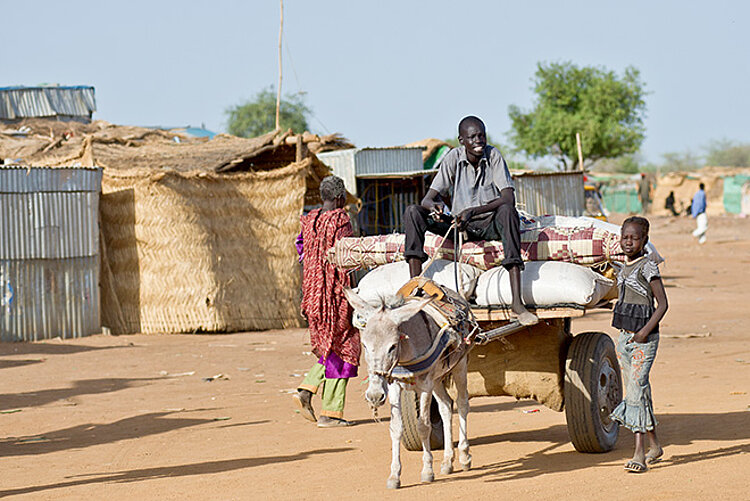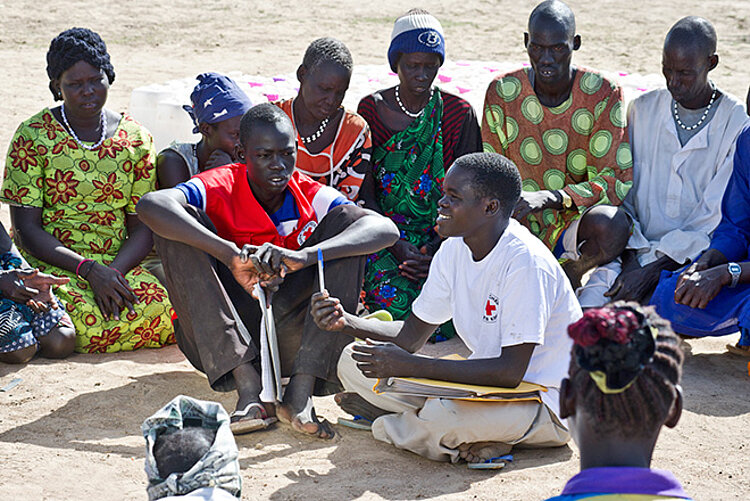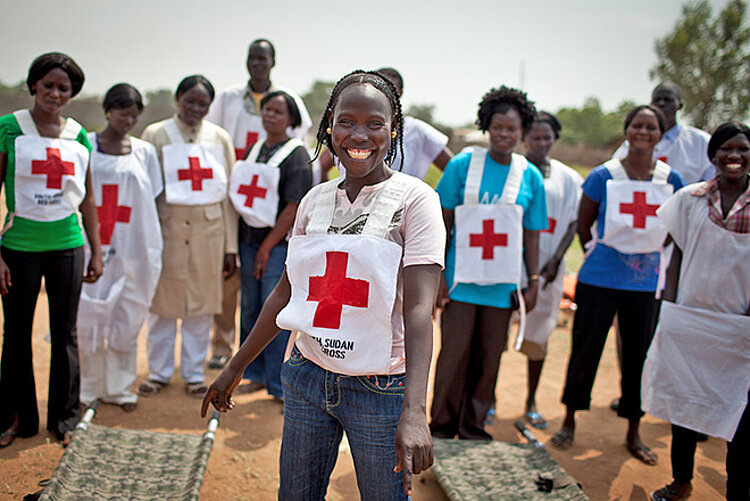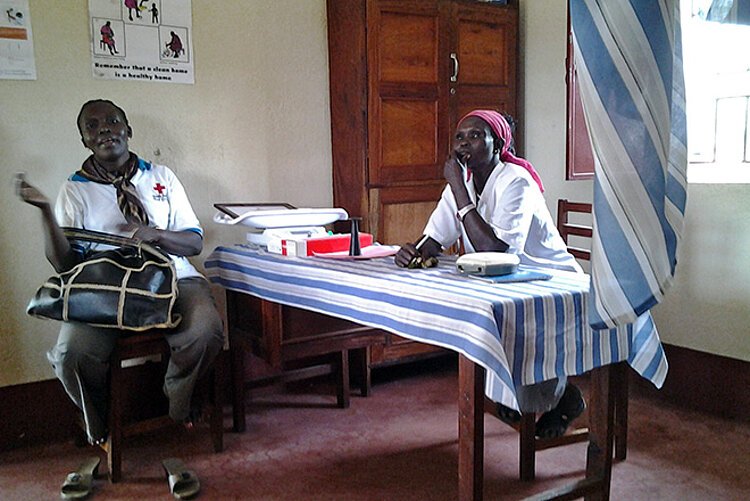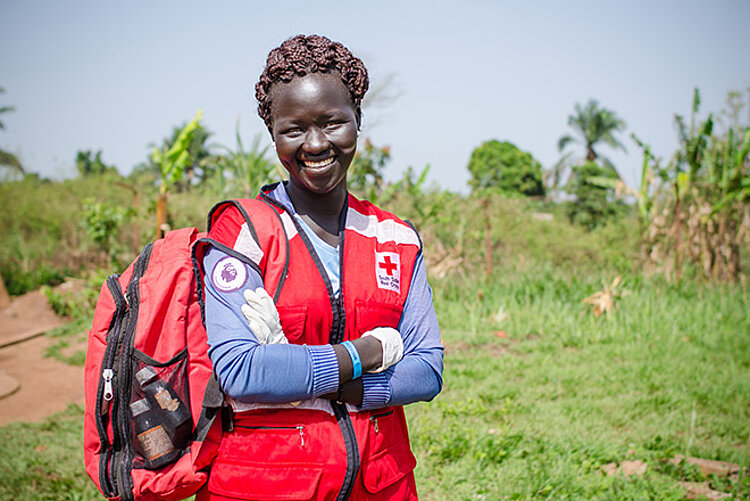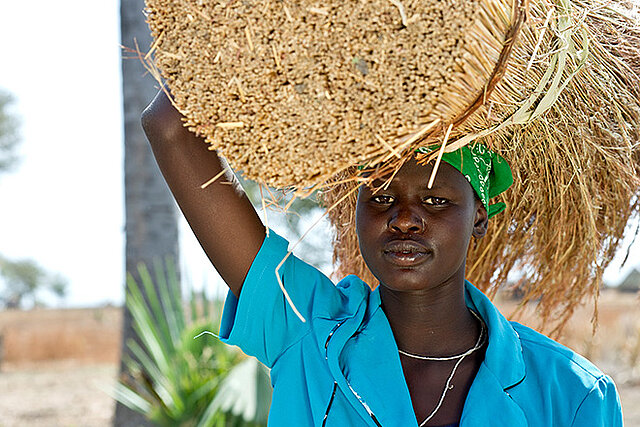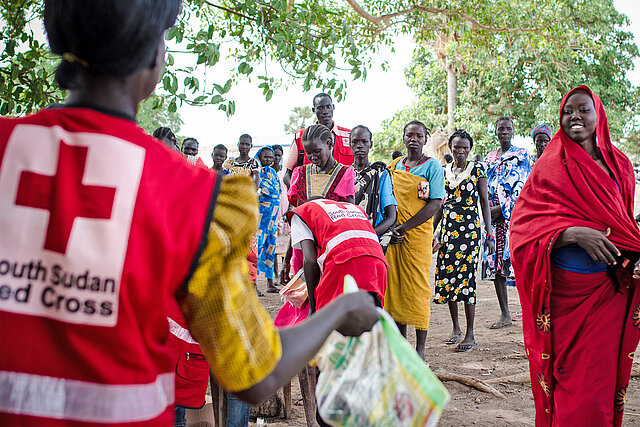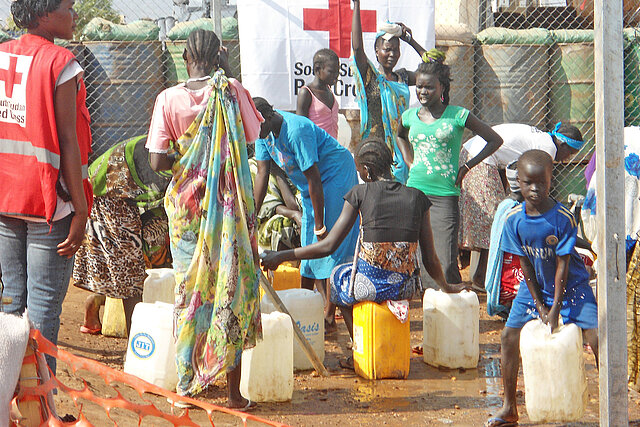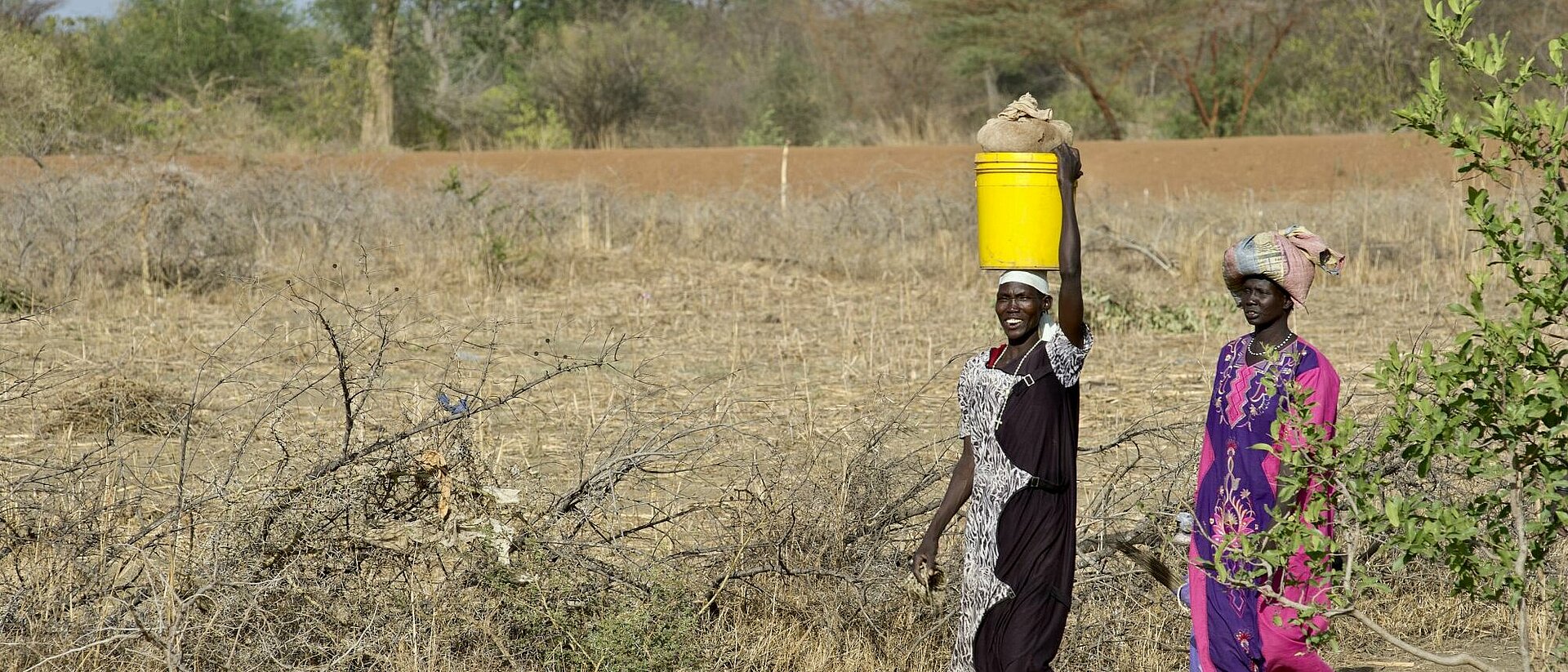
South Sudan: Improving livelihoods
More than ten years after its declaration of independence, the young state is still marked by armed conflicts and their consequences. Extreme climatic events exacerbate food insecurity and make it difficult for communities to feed themselves. 7.5 million people are dependent on humanitarian aid - more than half of the population. The Covid 19 pandemic has further worsened the situation. Since 2020, the German Red Cross has been working together with the South Sudan Red Cross on the ground to help people improve their lives with emergency relief measures and long-term projects.
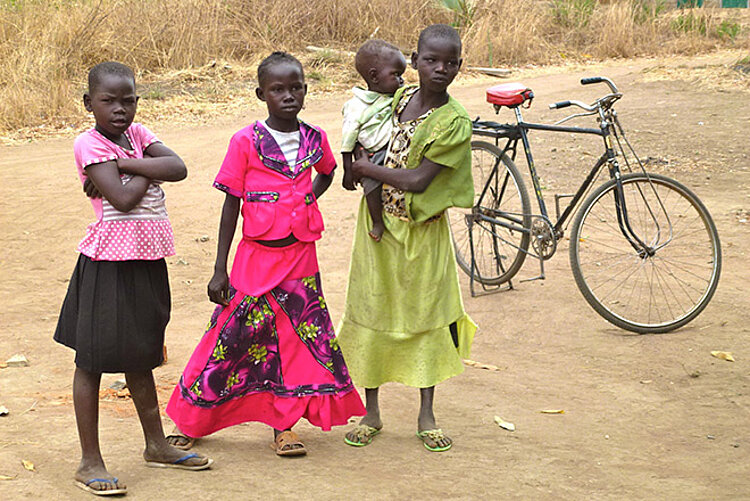
South Sudan: Civil war and displacement
Despite the peace agreement in 2018, conflicts continue to simmer across the country.
About 1.6 million South Sudanese have been internally displaced. In addition, another 2.2 million people have fled South Sudan to neighbouring countries, particularly Uganda.
The insecure situation in many regions, as well as food shortages, poverty and inadequate infrastructure often prevent the refugees from returning home.
Food insecurity
Increase production and secure livelihoodsThe chronic food shortage is one of the biggest challenges in South Sudan. Yields from agriculture - the most important source of income for most families - are low. Many families can neither grow enough food for their own needs nor secure their livelihoods through a regular income.
Although women provide most of the agricultural labour force and ultimately feed their families, they are often the most severely affected by malnutrition and are rarely able to dispose of the money they earn themselves.
In cooperation with the South Sudan Red Cross, GRC supports low-income, smallholder households, especially women and young people. For example, seeds and tools are distributed and agricultural training is provided.
In order to secure their livelihoods in the long term, farmers learn in farmer field schools, for example, how to increase their agricultural yields and how to react appropriately to environmental influences and climate change.
Improve water and sanitation
More than half of the South Sudanese population lacks access to clean drinking water and is forced to walk long distances to reach drinking water sources. Many people, especially children, suffer from diarrhoeal diseases such as cholera or other infectious diseases because they have to resort to using contaminated water.
Drinking water supply is also often the women's task; however, they are often exposed to dangers such as violent or sexualised assaults on the hour-long walks.
We support the South Sudan Red Cross in repairing hand pumps and wells, building latrines and equipping schools with sanitation facilities.
Hygiene training is one of the measures that have gained additional importance during the Covid 19 pandemic. Menstrual hygiene kits are also being provided to girls and women.
Providing trainings and creating new livelihoods
Unemployment among the young people of South Sudan is very high: an estimated 38 percent of men and 64 percent of women have never attended school. Thus, people often lack market-relevant skills to even gain a foothold in the world of work. Young men and women therefore have little chance of stable employment and further education.
In cooperation with the South Sudan Red Cross, we rehabilitate and re-equip vocational training centres. In addition, we enable people from rural areas, especially women, to complete an education. This helps to diversify the sources of income for families, to strengthen the position of women in their families and communities, and to increase the resilience of the rural population in the long term.
Strengthen social cohesion
As a result of past events, many people suffer from post-traumatic stress disorder – and very few receive psychosocial help. Disputes and conflicts due to a lack of resources are still often part of everyday life. In addition, refugee movements have created new communities whose internal cohesion is still weak.
In cooperation with the South Sudan Red Cross, we invest in activities that bring communities together and strengthen peaceful coexistence. This involves organising sports and cultural events together with community members and establishing "peace clubs" for joint activities and hobbies in schools. In addition, training courses on mediation, conflict resolution and non-violent communication are offered. A key concern here is to build local capacity in such a way that the newly acquired knowledge is retained in the long term by the South Sudan Red Cross, its volunteers and the communities in which they work.
Another focus of our work includes psychosocial support.
Improve health care
South Sudan has one of the highest child mortality rates in the world. Almost one child in ten dies before reaching the age of five - mainly due to preventable diseases. Further health risks arise from widespread malnutrition.
We support the South Sudan Red Cross in rehabilitating health centres in order to improve basic health care for the population.
A special focus is on enabling access to these centres for people with disabilities.
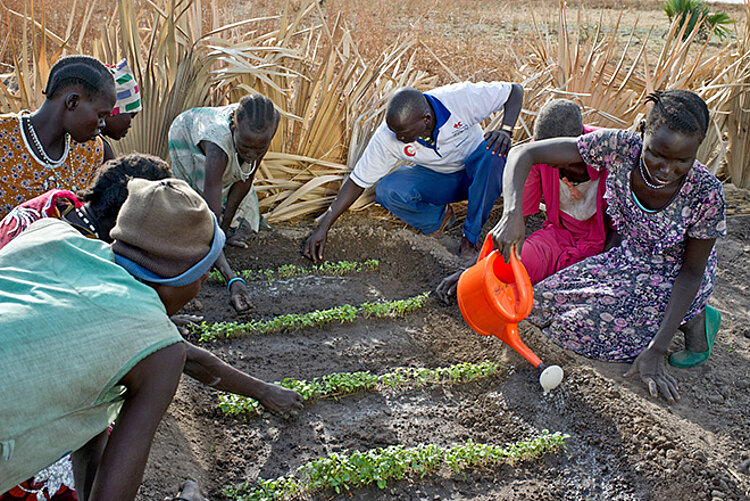
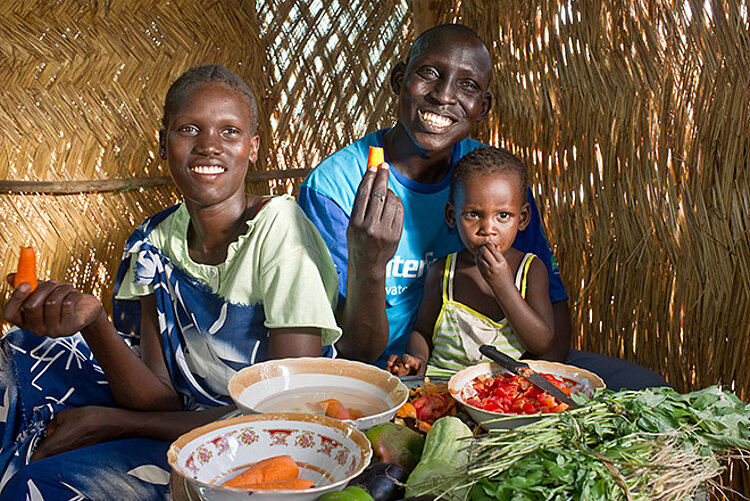
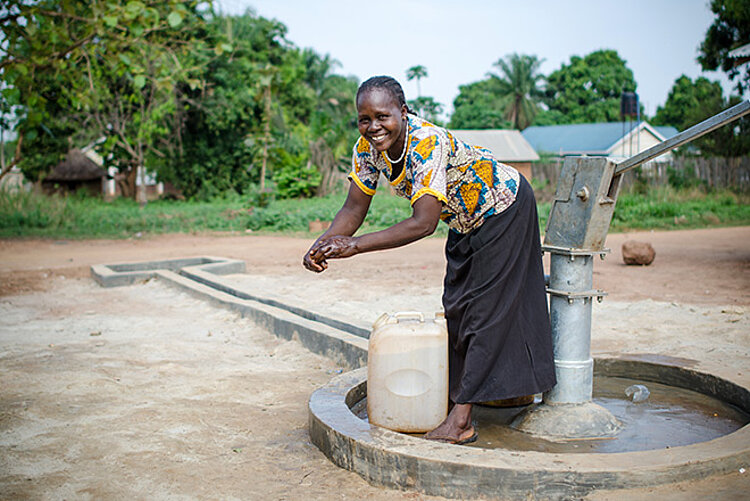
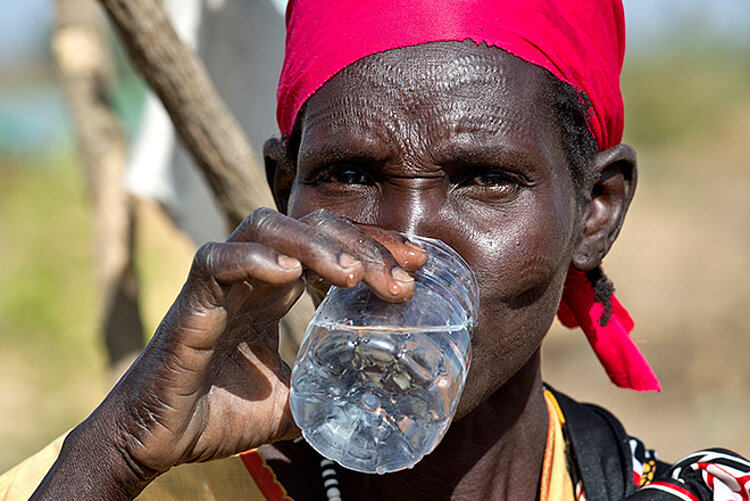
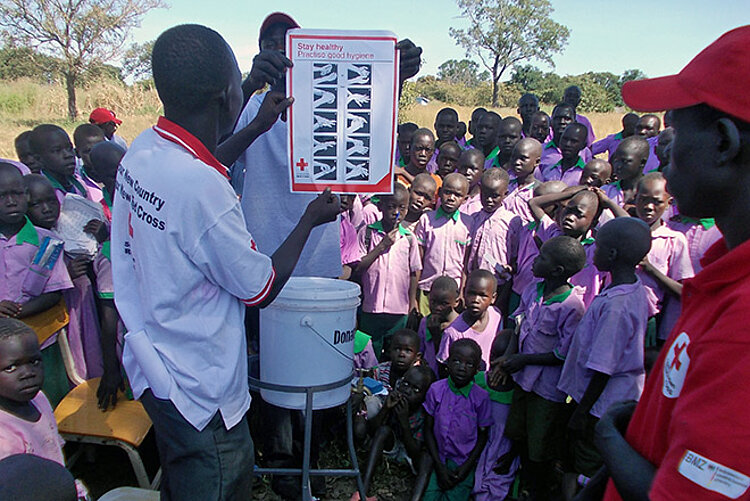
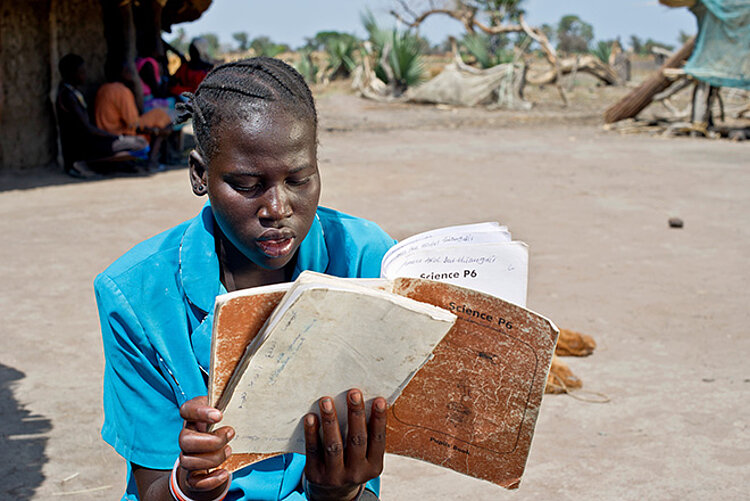
![Ausbildung im Südsudan [Translate to Englisch:] Hilfe für Frauen im Südsudan - Frau beim Fischen](/fileadmin/_processed_/7/d/csm_ab_suedsudan-bildung-existenzsicherung-fischen-frau_3917a3149f.jpg)
